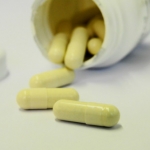Many women report vasomotor symptoms, including hot flushes and night sweats, during the menopausal transition. While estrogen is clearly one of the most effective treatments for vasomotor symptoms, recent concerns regarding the use of hormone replacement therapy (HRT) have made treaters much more reluctant to recommend HRT, even for short-term management of vasomotor symptoms.
Data from n a small clinical trial involving 47 patients was presented at the 50th Annual Meeting of the American Society for Therapeutic Radiology and Oncology (ASTRO) in Boston, Massachusetts. In this report, researchers from the Henry Ford Hospital in Detroit, Michigan demonstrated that acupuncture was as effective as antidepressant drug therapy for treating vasomotor symptoms in a group of breast cancer patients who were taking tamoxifen or the aromatase inhibitor anastrozole (Arimidex).
Women included in this trial had at least 14 hot flushes per week. Participants were treated with either with acupuncture or the selective serotonin reuptake inhibitor antidepressant venlafaxine (Effexor) and were followed over a period of 12 weeks. Both groups reported a similar and significant decrease in the frequency and severity of hot flushes. Women in both groups also showed significant improvements in the level of depressive symptoms and other quality of life measures. The most important difference between the two groups was that women receiving venlafaxine were more likely to report adverse events, including dizziness, nausea, and fatigue.
These data suggest that acupuncture may be an attractive option for women suffering from hot flushes. Although breast cancer patients may differ from peri- and post-menopausal women who suffer from hot flushes, the findings reported in this study are consistent with a previous pilot study demonstrating acupuncture to be effective for relieving hot flushes in a group of post-menopausal women.
Ruta Nonacs, MD PhD
Read more on Medscape (free registration)








Leave A Comment